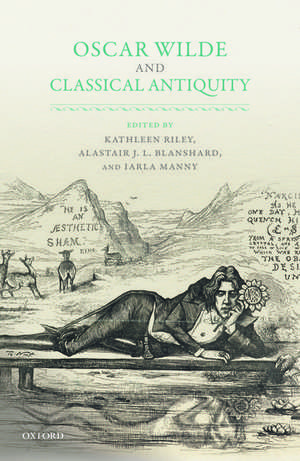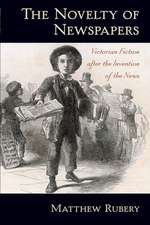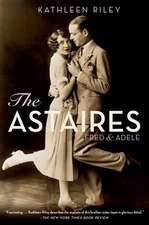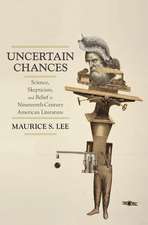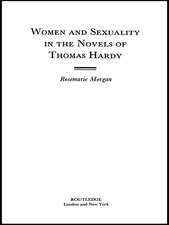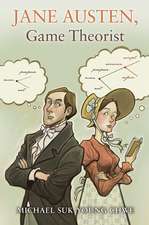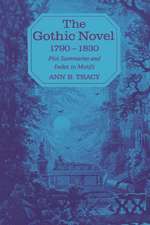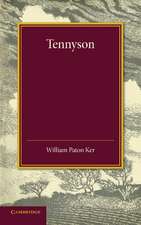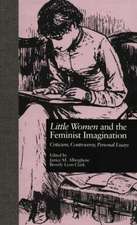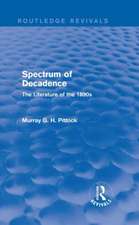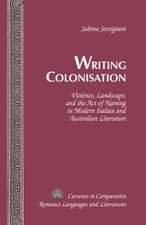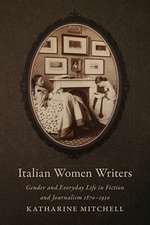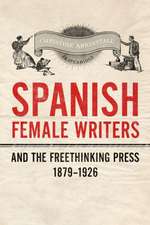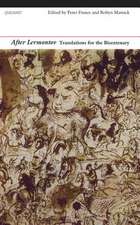Oscar Wilde and Classical Antiquity
Editat de Kathleen Riley, Alastair J. L. Blanshard, Iarla Mannyen Limba Engleză Hardback – 30 noi 2017
Preț: 675.35 lei
Preț vechi: 966.85 lei
-30% Nou
Puncte Express: 1013
Preț estimativ în valută:
129.22€ • 134.93$ • 106.71£
129.22€ • 134.93$ • 106.71£
Carte tipărită la comandă
Livrare economică 04-10 aprilie
Preluare comenzi: 021 569.72.76
Specificații
ISBN-13: 9780198789260
ISBN-10: 0198789262
Pagini: 402
Ilustrații: 10 black-and-white illustrations
Dimensiuni: 163 x 241 x 28 mm
Greutate: 0.74 kg
Editura: OUP OXFORD
Colecția OUP Oxford
Locul publicării:Oxford, United Kingdom
ISBN-10: 0198789262
Pagini: 402
Ilustrații: 10 black-and-white illustrations
Dimensiuni: 163 x 241 x 28 mm
Greutate: 0.74 kg
Editura: OUP OXFORD
Colecția OUP Oxford
Locul publicării:Oxford, United Kingdom
Recenzii
Oscar Wilde and Classical Antiquity powerfully demonstrates the degree to which Wilde's reading fueled the development of a mind that "could feel itself alive" only through encounters with literature.
Oscar Wilde and Classical Antiquity offers new perspectives on his most celebrated and canonical texts by adopting a uniquely multidisciplinary approach with insights into Wilde's classical sources that will be highly useful for in-depth studies of Oscar Wilde. Oscar Wilde and Classical Antiquity delineates the influence and breadth of Wilde's knowledge in the Classics, offering specific examples in the original Greek, French, Latin, and English that provide excellent source material for Wilde's fascinating essays, plays, and his novel. Oscar Wilde and Classical Antiquity has a comprehensive bibliography and provides a lasting contribution to Wildean scholarship.
Because of its new perspectives and revealing contributions, this collection concerning Wilde's relation to classical culture warrants attention from scholars of Wilde or Classical Reception. Readers not trained, as Wilde was, in Greek and Latin will find the essays completely accessible.
An excellently edited volume ... of the highest scholarly standard, which will no doubt be of interest to both Wilde scholars and classicists.
Wilde emerges as interesting, brilliant, sharply witty, complex, both idealistic and cynical, but a dedicated classicist, sadly out of step with the mores of most of his contemporaries. ... his love affair with the Classics continued until he died, as this collection of essays amply demonstrates.
Individual essays explore Wilde's classical education, the shaping influence of his experience as a spectator of classical drama, the impact of his classical training on his philosophy and fiction, and the significance of Roman antiquity in his writings.
The book adeptly fulfills its mission statement "to demonstrate in what ways Wilde's classicism is typical, in what ways heterodox or distinctive, and where it is situated in relation to Victorian social and intellectual frameworks" . . . The assembly of Victorianists and Classicists from multiple disciplines . . . has created a multifaceted successor to Iain Ross's Oscar Wilde and Ancient Greece (2013), and offers new contributions not only to studies in Oscar Wilde and the late Victorian period, but also reciprocally to Classics.
Peter Mitchell's compact book offers a practical and informative introduction to the largely unsung but widespread presence of the working donkey (and mule) in human history [which] should herald a new strand of publications encouraging archaeologists, anthropologists and historians towards greater working-animal-mindedness in investigations of relevant eras and regions.
This is a highly satisfying book, stimulating, varied, visually appealing, refreshingly jargon-free and exceptionally well edited. . . . It has much to offer anyone interested in the enigma of Wilde
Eighteen years after the centenary of Oscar Wilde's death in 1900, Oxford University Press has published this excellent monographic study . . . an excellent and highly recommended contribution to Wildean studies from the perspective of the classical tradition.
I greatly enjoyed the varied viewpoints of these illuminating essays, which greatly deepened my understanding of Wilde's complex love and use of Classics and can heartily recommend the book to scholars and post-graduate students of Classical Reception, English Literature and Theatre Studies. The volume amply fulfils its stated aim of offering a model for studies based around an individual and their use of the Classical tradition.
The analysis and inclusion of a variety of sources, including unpublished, annotated manuscripts, transcripts, and Wilde's notebooks, are an invaluable resource and welcome additions to ongoing discussions on Wilde. . . . the debates present are original, well-conceived and offer readers a concrete position from which to expand and further consider Wilde's classicism.
Oscar Wilde and Classical Antiquity offers new perspectives on his most celebrated and canonical texts by adopting a uniquely multidisciplinary approach with insights into Wilde's classical sources that will be highly useful for in-depth studies of Oscar Wilde. Oscar Wilde and Classical Antiquity delineates the influence and breadth of Wilde's knowledge in the Classics, offering specific examples in the original Greek, French, Latin, and English that provide excellent source material for Wilde's fascinating essays, plays, and his novel. Oscar Wilde and Classical Antiquity has a comprehensive bibliography and provides a lasting contribution to Wildean scholarship.
Because of its new perspectives and revealing contributions, this collection concerning Wilde's relation to classical culture warrants attention from scholars of Wilde or Classical Reception. Readers not trained, as Wilde was, in Greek and Latin will find the essays completely accessible.
An excellently edited volume ... of the highest scholarly standard, which will no doubt be of interest to both Wilde scholars and classicists.
Wilde emerges as interesting, brilliant, sharply witty, complex, both idealistic and cynical, but a dedicated classicist, sadly out of step with the mores of most of his contemporaries. ... his love affair with the Classics continued until he died, as this collection of essays amply demonstrates.
Individual essays explore Wilde's classical education, the shaping influence of his experience as a spectator of classical drama, the impact of his classical training on his philosophy and fiction, and the significance of Roman antiquity in his writings.
The book adeptly fulfills its mission statement "to demonstrate in what ways Wilde's classicism is typical, in what ways heterodox or distinctive, and where it is situated in relation to Victorian social and intellectual frameworks" . . . The assembly of Victorianists and Classicists from multiple disciplines . . . has created a multifaceted successor to Iain Ross's Oscar Wilde and Ancient Greece (2013), and offers new contributions not only to studies in Oscar Wilde and the late Victorian period, but also reciprocally to Classics.
Peter Mitchell's compact book offers a practical and informative introduction to the largely unsung but widespread presence of the working donkey (and mule) in human history [which] should herald a new strand of publications encouraging archaeologists, anthropologists and historians towards greater working-animal-mindedness in investigations of relevant eras and regions.
This is a highly satisfying book, stimulating, varied, visually appealing, refreshingly jargon-free and exceptionally well edited. . . . It has much to offer anyone interested in the enigma of Wilde
Eighteen years after the centenary of Oscar Wilde's death in 1900, Oxford University Press has published this excellent monographic study . . . an excellent and highly recommended contribution to Wildean studies from the perspective of the classical tradition.
I greatly enjoyed the varied viewpoints of these illuminating essays, which greatly deepened my understanding of Wilde's complex love and use of Classics and can heartily recommend the book to scholars and post-graduate students of Classical Reception, English Literature and Theatre Studies. The volume amply fulfils its stated aim of offering a model for studies based around an individual and their use of the Classical tradition.
The analysis and inclusion of a variety of sources, including unpublished, annotated manuscripts, transcripts, and Wilde's notebooks, are an invaluable resource and welcome additions to ongoing discussions on Wilde. . . . the debates present are original, well-conceived and offer readers a concrete position from which to expand and further consider Wilde's classicism.
Notă biografică
Kathleen Riley is a former British Academy Postdoctoral Fellow in Classics at Corpus Christi College, Oxford and now a freelance writer, theatre historian, and critic. She is the author of Nigel Hawthorne on Stage (University of Hertfordshire Press, 2004), The Reception and Performance of Euripides' Herakles: Reasoning Madness (OUP, 2008), and The Astaires: Fred & Adele (OUP USA, 2012), which has been optioned for a British feature film. She reviews plays and books on dance for the Times Literary Supplement and is a contributor to the Encyclopedia of Greek Tragedy (Wiley-Blackwell, 2013). Her current projects include a monograph exploring the ancient Greek concept of Nostos (homecoming) and its manifestations in literature and drama over the last hundred years.Alastair Blanshard is the Paul Eliadis Professor of Classics and Ancient History at the University of Queensland. He works extensively in the field of Classical Reception studies, serving as an Associate Editor for the Classical Receptions Journal and the subject-area editor for Classical Reception for the Oxford Classical Dictionary, as well as overseeing the Classics after Antiquity series for Cambridge University Press as one of its general editors. His publications include Sex: Vice and Love from Antiquity to Modernity (Wiley-Blackwell, 2010), Classics on Screen: Ancient Greece and Rome on Film (with Kim Shahabudin; Bloomsbury, 2011), and Classical World: All That Matters (Hodder and Stoughton, 2015).Iarla Manny studied Classics at Trinity College Dublin and Balliol College, Oxford. His MPhil thesis on Gerard Manley Hopkins's Hellenism and Hebraism was awarded the Gaisford Graduate Dissertation Prize by the University of Oxford's Faculty of Classics, and he is a recent recipient of the Michael Comber PhD Studentship in the Reception of the Classical World, held jointly at the Open University and St Hilda's College, Oxford. He is currently completing his doctoral thesis on Oscar Wilde and Graeco-Roman antiquity.
